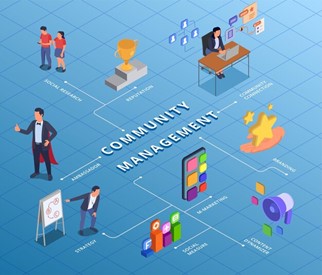In today’s corporate landscape, the prevalence of justification as a means to evade responsibility has become a concerning norm. As organizations grapple with this issue, the concept of risk ambassadors has emerged as a potential solution. Risk ambassadors are individuals within a business unit who act as representatives and promoters of proper risk management activities. While they are not risk managers themselves, they serve as liaisons between the risk management department and their respective departments, ensuring clear communication and a comprehensive understanding of the risks involved.
The Role of a Risk Management Ambassador
According to the dictionary, an ambassador is “a person who acts as a representative or promoter of a specific activity.” In the context of risk management, a risk management ambassador is someone who carries out their regular duties within a business unit while also advocating for effective risk management practices. These individuals serve as a direct line of communication between their department and the risk management department, facilitating the exchange of information and insights.
The primary benefit of having a risk management ambassador is the enhanced clarity on what is happening within a specific department. By actively engaging with the risk management department, they gain a comprehensive understanding of the risks associated with their department’s activities. This knowledge allows them to generate an overall risk management perception, potentially reducing the occurrence of negative events and promoting proactive risk mitigation strategies.
The Importance of Diplomacy and Trust
While the concept of a risk ambassador holds significant potential, there are potential drawbacks that must be considered. One major concern is the risk of being viewed as a snitch or creating mistrust within the department towards the risk management team. To overcome these challenges, a risk management ambassador must embody the qualities of an ambassadorship: diplomacy, tact, and trustworthiness.
Building trust and credibility within a department they are not directly part of or paid by is no easy feat. However, with the changing dynamics brought about by the COVID-19 pandemic, the concept of a risk ambassador becomes even more relevant. As organizations transition back to in-person work, establishing a risk ambassador program could be a valuable addition to the risk management department, fostering effective communication and risk awareness in the new office face-to-face norm.
Real-World Examples and Future Possibilities
While the concept of risk ambassadors is not widely implemented, there are instances where it has been successfully utilized. For example, a large financial institution implemented a risk ambassador program before the COVID-19 pandemic. Unfortunately, the current state of remote work makes it challenging to assess the program’s effectiveness in this context. However, exploring the potential of risk ambassadors in a post-COVID-19 world is a promising avenue for the risk management department.
The question arises: can risk ambassadors be the answer to justification busting? By actively promoting risk management practices and facilitating clear communication, risk ambassadors can play a crucial role in mitigating the prevalence of justification within organizations. Their presence can help foster a culture of accountability and responsibility, encouraging employees to take ownership of their actions and decisions.
Conclusion
In conclusion, the concept of risk ambassadors offers a unique approach to addressing the issue of justification within organizations. By leveraging individuals within business units as representatives and promoters of risk management activities, organizations can gain greater clarity on risks, reduce negative events, and improve overall communication. However, it is crucial to approach the implementation of risk ambassadors with diplomacy and trust-building in mind, ensuring that they are viewed as valuable assets rather than informants. As we navigate the changing dynamics of the post-COVID-19 workplace, exploring the potential of risk ambassadors becomes even more critical in fostering a culture of accountability and responsible decision-making.
